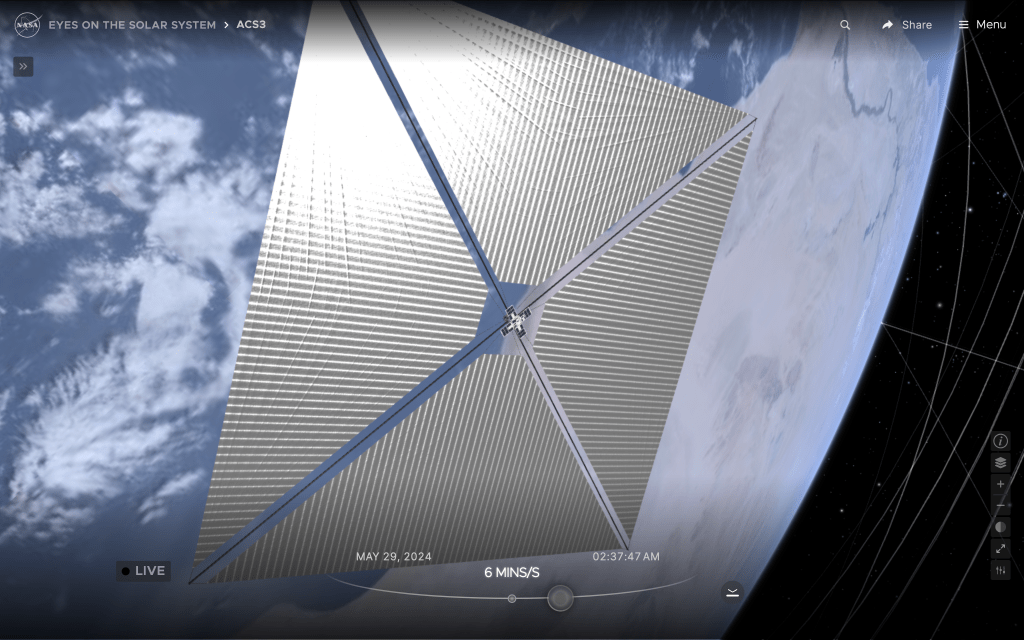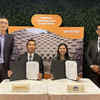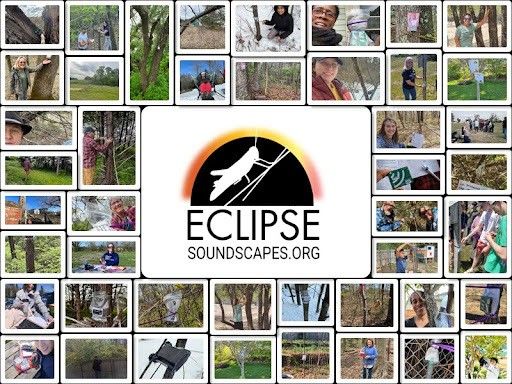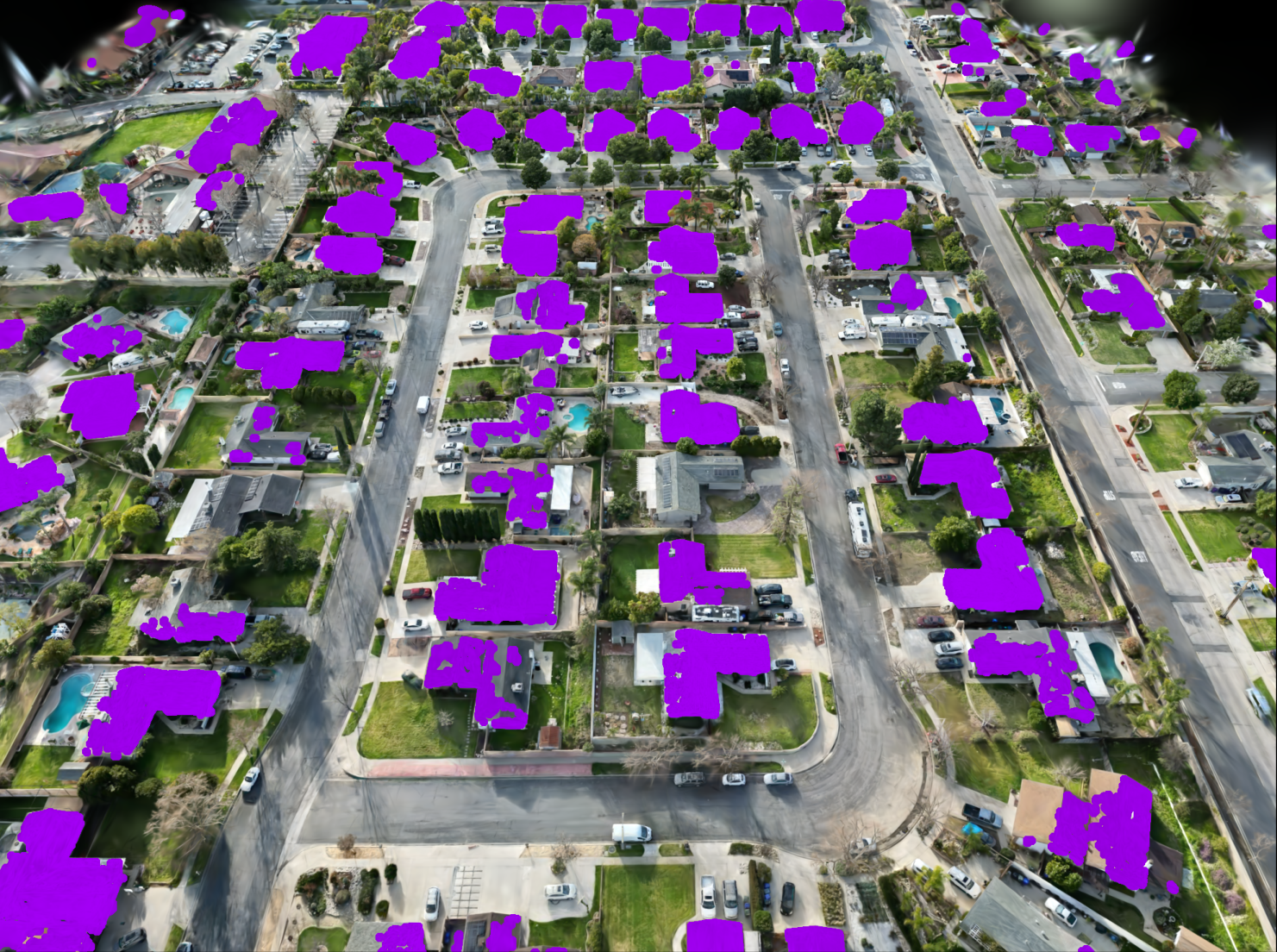Sail Along with NASA’s Solar Sail Tech Demo in Real-Time Simulation
NASA invites the public to virtually sail along with the Advanced Composite Solar Sail System‘s space journey using NASA’s “Eyes on the Solar System” visualization tool, a digital model of the solar system. This simulation shows the real-time positions of the planets, moons, and spacecraft – including NASA’s Advanced Composite Solar Sail System. Solar sails use the pressure […]

NASA invites the public to virtually sail along with the Advanced Composite Solar Sail System‘s space journey using NASA’s “Eyes on the Solar System” visualization tool, a digital model of the solar system. This simulation shows the real-time positions of the planets, moons, and spacecraft – including NASA’s Advanced Composite Solar Sail System.
Solar sails use the pressure of sunlight for propulsion, angling toward or away from the Sun so that photons bounce off the reflective sail to push a spacecraft. This eliminates the need for heavy propulsion systems and could enable longer duration and lower cost missions. The results from this technology demonstration – including the test of the sail’s composite boom system – will advance future space exploration to expand our understanding of our Sun and solar system.
The Advanced Composite Solar Sail System, which launched in April 2024, and deployed its reflective sail in August, is currently orbiting approximately 600 miles (1,000 kilometers) above Earth and is frequently visible in the night sky to observers in the Northern Hemisphere. Fans of the spacecraft can look for the sail in the night sky using a new feature in the NASA mobile app. Visibility may be intermittent, and the spacecraft could appear at variable levels of brightness as it moves in orbit.
For more mission updates, follow NASA’s Small Satellite Missions blog.
NASA’s Ames Research Center in California’s Silicon Valley, manages the Advanced Composite Solar Sail System project and designed and built the onboard camera diagnostic system. NASA Langley designed and built the deployable composite booms and solar sail system. NASA’s Small Spacecraft Technology (SST) program office based at NASA Ames and led by the agency’s Space Technology Mission Directorate (STMD), funds and manages the mission. NASA STMD’s Game Changing Development program funded the development of the deployable composite boom technology.
What's Your Reaction?



















.jpg?#)































